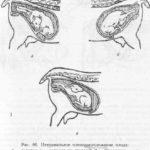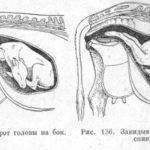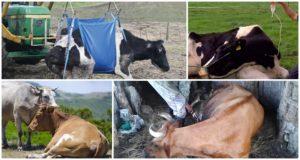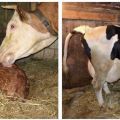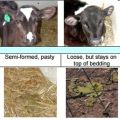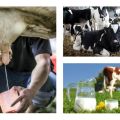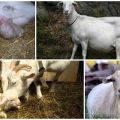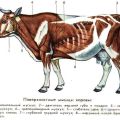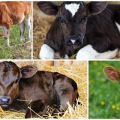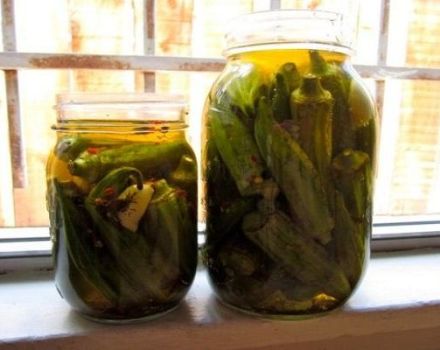Incorrect presentation of the fetus in cows and what to do with pathological childbirth
Incorrect presentation of the fetus in cows at birth is not abnormal in itself. And it happens in human babies. In general, difficulties depend on the anatomical features of both the calf and the mother. For a quick response, you need to be a little bit of a veterinarian, to navigate the nuances of the constitution of cattle, the peculiarities of the course of the birth process in a cow.
Causes of pathological childbirth
The normal course of labor in cattle depends on the ratio of the size of the calf in the widest places (head, sternum, pelvis) and the corresponding parameters of the woman in labor. With a narrow pelvis in a cow, the calf will inevitably get stuck. The orientation of the calf as it is placed in the womb also affects. It is considered normal if the calf is in a longitudinal (along the body) position. In this case, the back is pressed against the lower (side) wall of the abdominal cavity, and the legs are bent to the tummy.
Immediately before giving birth, the situation changes, the calf must take a certain position, move towards the birth canal. It is considered normal if:
- The calf moves with its head forward, with its front legs extended towards the “exit”. The back looks up towards the back of the cow.
- The calf walks along the paths with its hind legs forward, the hooves are turned upwards.
Accordingly, cases in which the calf is not presented as indicated in these options are recognized as incorrect, pathological. Combinations of head placement with forelimbs (head position), hind limbs (pelvic) are possible. In addition, the calf can lie sideways, upright, across.
Simultaneous entry into the pelvic area of 2 calves, too large a calf will also lead to problems. These were the reasons directly related to the fetus.
Pathologies associated with the mother include:
- too strong (weak) contractions;
- poor dilatation of the cervix;
- dryness (lack of natural moisture) of the birth canal.
Together, this leads to complications of childbirth in cattle.
Obstetrics in cows
Before you begin to provide assistance, you should prepare the required inventory, tools, wash your hands thoroughly with soap and water. A weak, slightly pink solution of potassium permanganate is used to treat the vagina. Vaseline (boric) and ichthyol ointment are used as a lubricant.
The anus is cleaned from feces with an enema (hand). A large fruit will have to be pulled with helpers. Preliminarily, the calf is brought into a normal position. To do this, use rope loops, tongs, hooks.
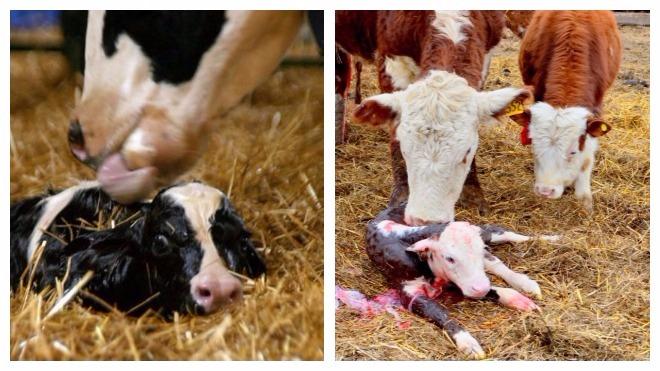
Possible complications
Among the various options, there are cases with an incorrect position of the head, limbs, presentation. Most often these are:
- Turning the head to the side. It is corrected by imposing loops on the front legs with the direction of the cub to the uterus with a hook. You should carefully pull your neck, head to the exit from the pelvis, working with your hand and loops (hooks).
- Lowering the head. The girth of the lower part is used with raising the fetal head. It is necessary to turn the baby in such a way as to straighten the position, place it with a loop in the direction of exiting the pelvis.
- Throwing the head back. Loops, hand straighten the pathology, sometimes using a hook.
If it is impossible to painlessly extract a large fetus, it is dissected with subsequent release in parts from the uterine cavity. In especially difficult cases, a caesarean section is performed by dissecting the abdominal wall. Both of these operations, due to responsibility, the presence of specific skills, are performed by a veterinarian.
